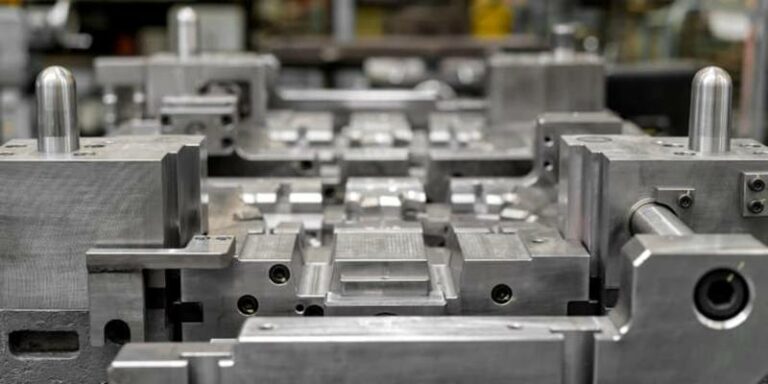Things about Alcast Company
Table of ContentsGetting The Alcast Company To WorkAn Unbiased View of Alcast CompanySome Of Alcast CompanySome Ideas on Alcast Company You Should KnowThe Facts About Alcast Company RevealedFacts About Alcast Company Uncovered
The refined distinction lies in the chemical web content. Chemical Comparison of Cast Aluminum Alloys Silicon advertises castability by lowering the alloy's melting temperature and improving fluidity during spreading. It plays a vital function in permitting complex mold and mildews to be filled up properly. In addition, silicon adds to the alloy's strength and wear resistance, making it useful in applications where longevity is crucial, such as vehicle parts and engine components.It also enhances the machinability of the alloy, making it much easier to refine into finished items. In this method, iron contributes to the total workability of light weight aluminum alloys.
Manganese contributes to the toughness of aluminum alloys and boosts workability. Magnesium is a lightweight component that offers toughness and impact resistance to light weight aluminum alloys.
Alcast Company Can Be Fun For Anyone
Zinc boosts the castability of aluminum alloys and assists control the solidification procedure during spreading. It improves the alloy's toughness and solidity.

The primary thermal conductivity, tensile toughness, yield toughness, and elongation vary. Select suitable resources according to the performance of the target item produced. Among the above alloys, A356 has the highest thermal conductivity, and A380 and ADC12 have the most affordable. The tensile limit is the opposite. A360 has the most effective yield stamina and the greatest prolongation price.
Alcast Company for Beginners

In accuracy casting, 6063 is fit for applications where elaborate geometries and premium surface area finishes are extremely important. Examples consist of telecommunication enclosures, where the alloy's premium formability enables sleek and cosmetically pleasing designs while keeping structural honesty. Likewise, in the Lighting Solutions market, precision-cast 6063 components produce stylish and reliable lighting fixtures that need intricate forms and good thermal efficiency.
The A360 shows premium prolongation, making it optimal for complicated and thin-walled elements. In precision casting applications, A360 is well-suited for sectors such as Customer Electronics, Telecommunication, and Power Tools.
Alcast Company - An Overview
Its unique residential or commercial properties make A360 a useful selection for accuracy spreading in these sectors, boosting item durability and quality. Aluminum Casting. Aluminum alloy 380, or A380, is a widely utilized spreading alloy with numerous distinct characteristics.
In precision casting, light weight aluminum 413 radiates in the Customer Electronic Devices and Power Devices industries. It's generally used to craft elaborate components like smart device housings, electronic camera bodies, and power tool cases. Its accuracy is remarkable, with limited resistances approximately 0.01 mm, ensuring flawless item setting up. This alloy's remarkable rust resistance makes it an exceptional option for outdoor applications, guaranteeing resilient, resilient products in the discussed markets.
Some Of Alcast Company
The light weight aluminum alloy you pick will substantially affect both the spreading procedure and the homes of the final item. Due to the fact that of this, you must make your decision very carefully and take an informed approach.
Establishing one of the most appropriate light weight aluminum alloy for your application will suggest considering a vast selection of features. These relative alloy features follow the North American Die Spreading Organization's guidelines, and we've split them into two groups. The initial category addresses alloy qualities that impact the production procedure. The 2nd covers attributes affecting the residential or commercial properties of the last item.
The Buzz on Alcast Company
The alloy you select for die spreading straight affects numerous aspects of the spreading process, like just how easy the alloy is to work with and if it is prone to casting issues. Warm cracking, additionally called solidification splitting, is a typical die spreading flaw for light weight aluminum alloys that can lead to interior or surface-level splits or fractures.
Certain aluminum alloys are extra vulnerable to hot fracturing than others, and your selection ought to consider this. An additional common defect located in the die spreading of aluminum is pass away soldering, which is when the cast stays with the die wall surfaces and makes ejection hard. It can damage both the cast imp source and the die, so you must seek alloys with high anti-soldering residential or commercial properties.
Deterioration resistance, which is currently a noteworthy characteristic of light weight aluminum, can differ substantially from alloy to alloy and is a vital particular to think about depending upon the ecological conditions your product will be subjected to (Aluminum Castings). Use resistance is one more property typically sought in aluminum products and can separate some alloys